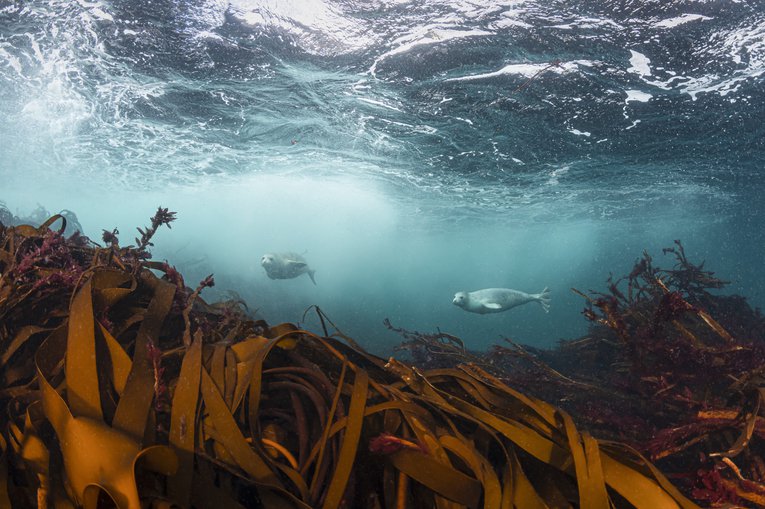
Offshore wind and marine protection: We must safeguard both
The UK is right to champion offshore wind. It’s a powerful force in the fight against climate change and essential for delivering cleaner, cheaper energy. But we cannot protect the climate at the expense of our seas.
New legislation threatens to weaken vital safeguards for Marine Protected Areas (MPAs). We support offshore wind but nature and climate are inseparable. Solving one crisis while deepening another simply doesn’t add up. We need smart solutions that protect both.
Compensation reform: A risk to marine integrity
The UK Government’s target of 43–50GW of offshore wind by 2030 is bold and necessary. But as our seas grow busier, pressure on MPAs intensifies. When offshore wind developments cause harm, compensating for that damage is becoming increasingly complex.
The proposed reforms introduce a three-tier hierarchy:
- Direct compensation for the affected species or habitat (‘like for like’)
- Similar compensation for related species or habitats, even at different sites
- Broad compensation for unrelated environmental pressures, such as water quality
This flexibility risks letting projects bypass like-for-like compensation, replacing it with unrelated actions. Crucially, the reforms abandon the legal requirement for ‘ecological coherence’ in favour of the undefined goal of ‘ecological benefit’ - a term with no legal standing.
Why it matters?
The UK Government wants to make these changes by amending the Habitats Regulations. These are some of the UK’s strongest environmental legislation and are grounded in scientific evidence. They offer the highest level of legal protection for the most important species and habitats in UK seas.
The Planning and Infrastructure Bill: A parallel threat
Running alongside the compensation reforms is the Planning and Infrastructure Bill (PIB), aimed at accelerating development. Though focused on housing, it extends 12 nautical miles offshore, with uncertain and potentially harmful implications for marine environments.
Under the PIB, developers could pay into a Nature Restoration Fund to offset damage via Environmental Delivery Plans (EDPs). While recent updates better link funds to affected species or habitats, there’s still no legal guarantee that money will be used where it’s most needed. Without safeguards, the ecological coherence of MPAs remains at risk.
Together, the PIB and compensation reforms reflect a troubling trend: treating nature protection as an obstacle to growth, rather than a foundation for a sustainable future.
The bigger picture: Nature under pressure
UK seas are already in poor condition. Now, protections are being steadily eroded. The UK has pledged to protect 30% of its seas by 2030 but weakening rules could turn that promise into a hollow gesture. Offshore wind must be developed in harmony with nature, not at its expense.
We cannot solve the climate crisis while worsening the nature crisis. Healthy seas regulate climate, support fisheries, and shield our coasts. Sacrificing them for short-term flexibility is reckless.
What’s next?
The Defra consultation on compensation reforms covered England, Wales and Northern Ireland. The Scottish Government launched a parallel consultation, which has also now closed. The PIB is nearing finalisation in Westminster, but many critical details remain unresolved.
Sign up to our e-newsletter to stay informed, take action, and help protect the seas we all depend on.




